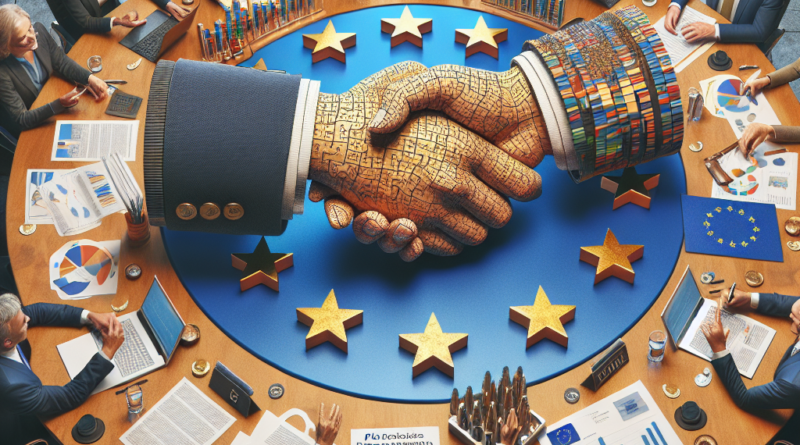Draghi’s Six-Point Plan to Revitalize Europe
Europe’s Urgent Call for Transformation
Mario Draghi recently emphasized that Europe is facing critical challenges and transformations that require a renewed commitment to competitiveness.
The former ECB and Italian Prime Minister highlighted the need for a coordinated industrial policy, swift decisions, and substantial investments to keep pace with rivals like the United States and China.
In a report commissioned a year ago by the EU, Draghi stated there exists an “existential challenge” that cannot be postponed.
To avoid falling into a trap of stagnant productivity and weak growth, Europe must invest twice as much as it did in post-World War II reconstruction, he warned.
Investment Goals
Draghi’s extensive 300-page report reveals that the EU must boost investments by roughly 5% of its GDP, equating to about 800 billion euros per year—an unprecedented level in over 50 years.
Until now, EU growth has been consistently slower than that of the U.S., raising concerns about its capacity to effectively digitize and decarbonize in the face of northern and southern competition.
Three Major Transformations
In identifying the urgent need for change, Draghi pointed out three transformative challenges.
The first is the necessity to accelerate innovation, as European companies lag behind in the tech arena.
Second, as energy prices soar, Europe must capitalize on the shift toward decarbonization by taking the lead in clean technologies and ensuring energy reliability through clean sources.
Finally, geopolitical fragmentation poses a risk, necessitating a strategy to enhance resource independence and bolster global influence.
Energy Transition
To make energy transition an opportunity, Europe must align all policies with climate goals and collaborate across sectors.
The report indicates that the four major emission-intensive industries, such as chemicals and metals, will require an investment of around 500 billion euros over the next 15 years to decarbonize.
Supply Chain Resilience
Given its high trade openness, the EU’s vulnerability to supply chain disruptions is notable.
With 40% of imports relying on a limited number of suppliers, the need for a robust foreign economic policy is pressing to ensure stable technology supply chains.
Improved Coordination
The EU must enhance coordination among member states to tackle these challenges effectively, as current disparate subsidy levels disrupt the single market.
Funding Innovations
Investment in crucial public goods is essential.
Draghi advocates for the regular issuance of common debt instruments to finance joint projects among member states.
Critical Sectors
The report outlines ten critical sectors needing attention: Energy, Raw Materials, Digitalization, FMCG, AI, Semiconductors, High Energy-Consumption Industries, Clean Technologies, Automotive, Defense, Space, Pharmaceuticals, and Transport.
To drive meaningful progress in these areas, Europe must adopt best practices in technological acceleration and governance.




